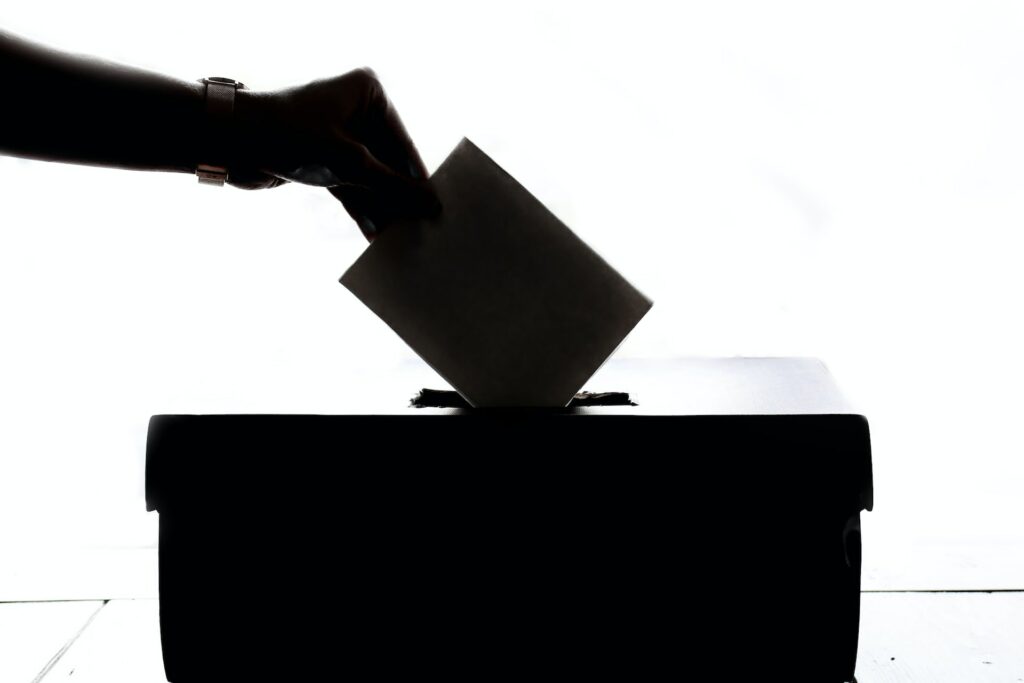
(Scypre.com) – A recent change to election rules in Georgia is stirring up concerns just months ahead of the November election. The new rule could permit some local election boards to refuse to certify election results, a step usually considered routine in the voting process.
This development in the battleground state has escalated the partisan debate surrounding election certification, which traditionally involves confirming that the number of voters who cast ballots matches the total votes, with any legal challenges being addressed in the courts.
In May, the tension around certification became apparent when a member of the Fulton County election board, Republican Julie Adams, abstained from certifying the primary results. “It’s time to fix the problems in our elections by ensuring compliance with the law, transparency in elections conduct, and accuracy in results,” Adams stated, citing insufficient access to underlying election records to verify the vote. Despite her abstention, the certification proceeded after her colleagues overruled her decision.
This incident, however, has raised alarms. Adams is part of a growing number of local officials in Georgia who have declined to certify results this year, a trend that could continue to rise. The new state rule, passed by a 3-2 vote with Republican backing, allows local boards to conduct a “reasonable inquiry” before certifying election results. The rule’s passage has sparked concerns that board members motivated by unsupported claims of election fraud could use this provision to refuse certification, potentially leading to significant disruptions.
Julie Adams is currently suing her own Fulton County board, seeking a court ruling to affirm that local election boards have the discretion not to certify an election. Adams, who serves as a regional coordinator for the Election Integrity Network, founded by a Trump ally, declined to comment further due to the ongoing litigation.
Meanwhile, Georgia Secretary of State Brad Raffensperger, a Republican known for refuting Trump’s false election claims, has made it clear that refusing to certify results is not an option. “We fully anticipate that counties will follow the law,” Raffensperger wrote on X (formerly Twitter).
The state board’s sole Democrat, Sara Tindall Ghazal, criticized the new rule, expressing concerns that it conflicts with state law and reflects a broader trend of replacing mainstream Republican lawyers with more activist appointees. This shift in the board’s composition has not gone unnoticed, with former President Donald Trump praising the board’s Republicans at a recent rally in Atlanta. “They’re on fire. They’re doing a great job,” Trump said, referring to the Republican board members.
Ghazal warns that such partisan language and actions could undermine public confidence in the election process. However, Janelle King, a Republican board member, dismissed suggestions that Trump’s approval influences her decisions, emphasizing that her focus remains on the facts and securing the integrity of elections.
In addition to the new rule on certification, the board’s Republicans have also advanced changes to regulations concerning ballot drop boxes, ballot counting, poll watchers, and memory cards, just months before the election. Ghazal noted that the board is planning to consider a more comprehensive rule on certification at an upcoming meeting in August.
These developments in Georgia are part of a broader pattern seen in other swing states like Michigan, Arizona, Nevada, and Pennsylvania, where efforts to disrupt certification have become more common since 2020. Although such attempts have been unsuccessful due to state officials or court interventions, they still pose significant challenges.
According to Lauren Miller Karalunas of the Brennan Center for Justice, even brief delays in certification can strain already overburdened election officials and heighten distrust in the electoral process, particularly in a presidential election year when officials face tight deadlines for the Electoral College.